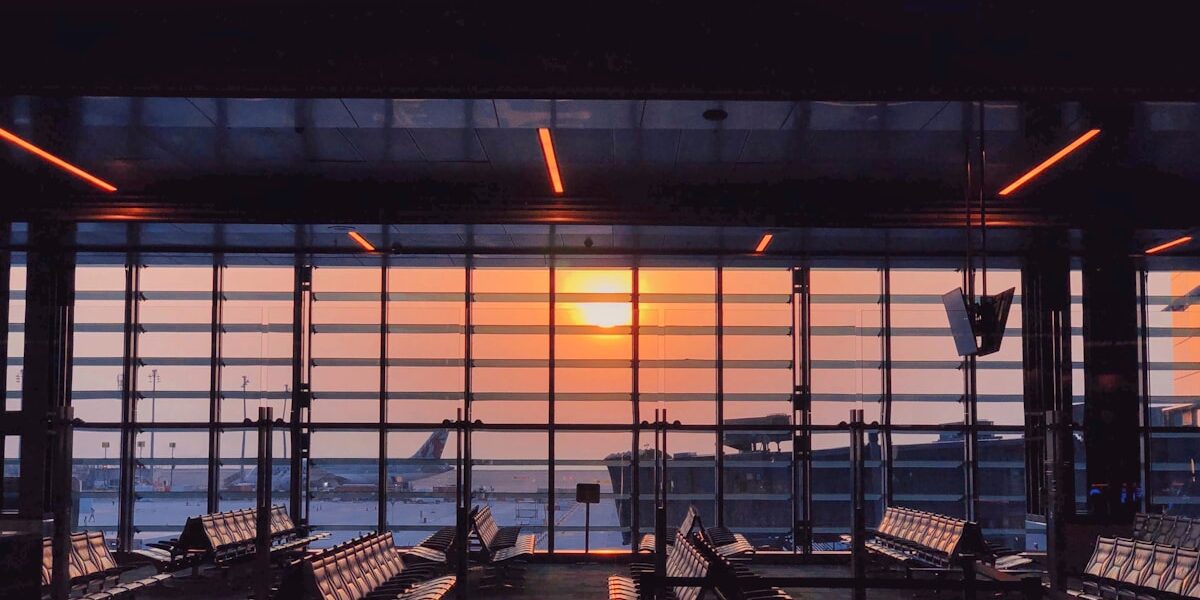LAX to France: A Comprehensive Travel Guide
LAX to France: A Comprehensive Travel Guide
Flying from Los Angeles International Airport (LAX) to France is an experience that combines extensive travel logistics with the excitement of visiting a European country rich in culture and history. To make your journey smooth and enjoyable, a detailed guide covering all aspects of the travel is essential.

Choosing Your Airline
Several airlines provide direct or connecting flights from LAX to various cities in France. Major players on this route include American Airlines, Delta, Air France, and United Airlines. These carriers offer direct flights primarily to Paris Charles de Gaulle (CDG) Airport. Connecting flights open up options to cities like Lyon, Marseille, and Nice.
Review the flight schedules, ticket prices, and customer reviews. Use established travel search engines like Kayak, Google Flights, or Skyscanner for comparative analysis. Business and first-class ticket options are available for added comfort, although economy class is the most budget-friendly.
Booking Your Tickets
Book tickets well in advance to secure the best deals. For those who can be flexible with their travel dates, off-peak seasons generally offer lower prices. Flash sales and promotions by airlines are worth keeping an eye on. Always check refund and cancellation policies, especially in an era where travel plans can change suddenly.
Pre-Flight Preparation
Ensure your passport is valid for at least six months beyond your planned stay in France. Most travelers from the U.S. do not need a visa for stays under 90 days. Nonetheless, check the latest travel advisories and entry requirements from the French Consulate or the U.S. Department of State.
Packing Essentials
Pack smartly, considering both the weather in France and TSA regulations in the U.S. Liquids should be in containers of 3.4 ounces or less and placed in a one-quart, clear plastic, zip-top bag for easier security screening. France generally experiences moderate weather, but winters can be cold, and summers warm. Bring season-appropriate clothing and a versatile jacket.
Arriving at LAX
Arrive at least three hours before an international flight. LAX is one of the busiest airports in the world, and security checks can be time-consuming. Utilize the LAX FlyAway bus service, rideshare options, or airport parking facilities if driving. Check with your airline for terminal information, as LAX has nine terminals.
Flight Duration and In-Flight Experience
Direct flights from LAX to Paris CDG typically take about 11 hours. In-flight services on major airlines include meals, beverages, and entertainment. Staying hydrated is essential, and it’s smart to pack snacks and a neck pillow for added comfort. Noise-canceling headphones can also enhance your in-flight experience.
Landing in France
Upon arrival at CDG or any other French airport, prepare for customs and immigration checks. Be ready to present your passport, and arrival documentation, and respond to questions about your stay. Familiarize yourself with French customs regulations, especially if carrying prescription medication or high-value items.
Transportation in France
Transportation options from the airport are diverse. Taxis, rideshares, and public transport systems like buses and the RER train service can take you from CDG to central Paris. Renting a car offers flexibility, but familiarize yourself with France’s driving laws and available parking options.
Accommodation Options
France offers a wide range of accommodation options, from luxurious hotels to quaint bed-and-breakfasts. In Paris, popular areas include the Marais, Latin Quarter, and Saint-Germain-des-Prés. Booking platforms like Booking.com, Airbnb, and Expedia help compare options and prices. Reviews and ratings can guide your decision.
Exploring French Cuisine
French cuisine is world-renowned. Enjoy croissants, baguettes, and pastries at local bakeries. Delight in regional dishes like coq au vin, bouillabaisse, and ratatouille. Don’t miss out on trying French cheeses and wines, which vary by region. Dining can range from fine dining at Michelin-starred restaurants to casual bistros and cafes.
Sightseeing and Activities
France is rich in historical landmarks, museums, and scenic spots. Paris boasts the Eiffel Tower, Louvre Museum, and Notre-Dame Cathedral. The Provence region is famous for its lavender fields and wine tours. The French Riviera offers beautiful beaches and glamorous resorts. Research and plan your itinerary to make the most of your trip.
Cultural Etiquette
Understanding local customs and etiquette enhances your travel experience. French people appreciate politeness; greeting with a “bonjour” or “bonsoir” goes a long way. Public transport etiquette includes offering your seat to elderly passengers and respecting personal space. Tipping is appreciated but not obligatory, usually around 5-10% of the bill.
Language Tips
While many French people speak some English, learning basic French phrases can be beneficial. Phrases like “merci” (thank you), “s’il vous plaît” (please), and “parlez-vous anglais?” (Do you speak English?) can facilitate smoother interactions. Language translation apps or phrasebooks are handy tools to have.
Shopping in France
France offers fantastic shopping experiences. From high-end fashion boutiques in Paris’ Champs-Élysées to local markets selling fresh produce, cheese, and handcrafted goods, there’s something for everyone. Familiarize yourself with store hours, as many shops close on Sundays and during lunchtime.
Health and Safety Tips
Healthcare in France is excellent, but obtaining travel health insurance is wise. Carry any necessary medications and a basic first aid kit. Be mindful of your belongings, especially in crowded areas, to avoid pickpocketing. Emergency services numbers are 15 for medical, 17 for police, and 18 for fire services.
Money and Payments
The Euro is the currency in France. Credit and debit cards are widely accepted, but carrying some cash is useful for smaller establishments. ATMs are easily accessible, but notify your bank of your travel to avoid card blocks. Understanding current exchange rates can help manage your budget effectively.
Public Transport
France has an extensive public transport system. In Paris, the Métro is efficient for city travel. For regional travel, the TGV (high-speed train) connects major cities. Buses and trams are also available. Purchase travel passes for cost-effective and simplified journeys. Download transport apps for schedules and route information.
Staying Connected
Staying connected is crucial for any traveler. Prepaid SIM cards are available at major French airports and telecom stores. Wi-Fi is widely available in hotels, cafes, and public areas. Download essential travel apps for maps, translation, and local information to enhance your travel experience.
Climate and Best Times to Visit
France experiences diverse climates. The best time to visit depends on your interests. Spring and fall offer mild weather and fewer crowds, ideal for sightseeing. Summer is great for coastal regions but can be busy and hot. Winter is perfect for skiing in the French Alps and enjoying festive activities.
Traveling with Children
France is family-friendly with numerous activities for children. Disneyland Paris is a favorite. Many museums and attractions offer child-friendly exhibits. Kid-friendly meals are common in restaurants. Ensure to pack essentials like snacks, toys, and travel games to keep them entertained during long journeys.
Religious and National Holidays
Familiarize yourself with French public holidays as shops and services may close. Key holidays include Bastille Day on July 14, Christmas, and Easter. During these times, special events, parades, and public celebrations offer a unique cultural experience. Plan accordingly to make the most of these events.
Emergency Contact Information
- Medical Emergencies: 15
- Police: 17
- Fire Services: 18
- U.S. Embassy in Paris: +33 1 43 12 22 22
Local Customs and Sensitive Topics
Understanding and respecting local customs is critical. For instance, avoid loud conversations and respect personal space in public places. Be cautious when discussing sensitive topics such as politics and religion, as these can be contentious. Adhering to these guidelines ensures a positive cultural exchange.
Tips for Sustainable Travel
Sustainable travel is becoming increasingly important. Opt for public transport or bicycle rentals instead of car rentals. Support local businesses and purchase locally-made products. Minimize waste by carrying a reusable water bottle and tote bag. Respect natural sites by following designated paths and not littering.
Engaging with Locals
Engaging with locals enriches your travel experience. Participate in local events, festivals, and markets. Be open to conversations and learn about the French way of life. This interaction offers authentic insights that go beyond typical tourist experiences.
Using Technology and Travel Apps
Leverage technology for a smoother travel experience. Apps for language translation, navigation, currency conversion, and local recommendations are invaluable. Social media platforms can offer real-time travel tips and safety updates. Keep your devices charged and secure, and consider portable chargers for long days out.



